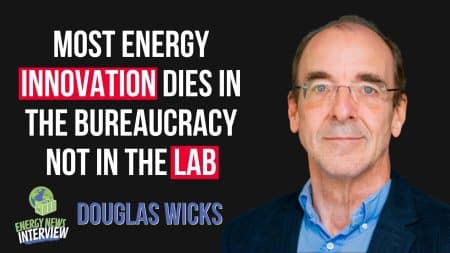One of the latest policy shifts was announced by the U.S. Department of the Treasury on January 3, with the unveiling of the 45V hydrogen tax credit rules. These rules have been described as both a compromise and a catalyst—reflecting their dual intent to mitigate greenhouse gas emissions while fostering growth within the U.S. hydrogen industry.
The hydrogen tax credit, part of a broader attempt to transition the energy sector toward greener alternatives, emerged from a series of legislative maneuvers aimed at strengthening the domestic clean energy economy. By offering financial incentives linked to emissions reduction thresholds, the 45V tax credits are intended to drive investment in cleaner hydrogen production methods, thereby encouraging companies to minimize their carbon footprint. However, the timing and political context in which these rules were released inject a degree of uncertainty into the market.
The good news, is that the industry has broadly accepted these rules as a viable compromise. Their design seeks a middle path between aggressive environmental goals and the practicalities of fostering a nascent but critical industry. This acceptance comes amidst the historical political landscape where, had these rules been implemented earlier or under a different administration, investment decisions might have already been influenced by more definite policy predictability.
On the other hand, the political shifts—with the Democratic party not holding the presidency or the House of Representatives at the time of the rules’ finalization—compound these uncertainties. This political reality raises stakeholders’ concerns about the policy’s stability under subsequent administrations. The hesitance from developers to immediately proceed with final investment decisions suggests a cautious approach toward future-proofing their strategies against potential regulatory volatility.
Despite these challenges, there are elements within the policy that provide a silver lining for developers. The likelihood that these credits will persist, even in the face of political change, is underpinned by built-in safeguards designed by the Treasury to withstand policy erosion—these design choices reflect an understanding of the historical challenges in preserving long-term policy commitments. Furthermore, should the policy be altered, it is more probable that any changes would make the credits easier to claim rather than abolishing them entirely. This scenario, although beneficial for industry expansion, raises concerns from an environmental perspective, potentially diluting the policy’s effectiveness in driving significant emissions reductions.
Thus, as the dust settles following the latest political transitions and the first 100 days of the new administration, there could eventually be a resumption of progress in advancing U.S. green hydrogen initiatives. There remains a robust potential for the sector to transition from a waiting period into a phase of action, provided that political and economic stability align to bolster investor confidence. This holds significant implications for the future trajectory of the U.S. hydrogen industry which, while facing immediate uncertainty, also stands on the cusp of growth fueled by policy-driven incentives.
The emergence of the hydrogen credit framework represents a critical node in the broader dynamics of energy policy, illustrating the complex interplay of innovation, regulation, and industry sentiment. By navigating these political landscapes with a deft hand, there remains ample opportunity to orient the hydrogen sector toward achieving its full potential as both an agent of decarbonization and an engine for economic growth.
Stay updated on the latest in energy! Follow us on LinkedIn, Facebook, and X for real-time news and insights. Don’t miss out on exclusive interviews and webinars—subscribe to our YouTube channel today! Join our community and be part of the conversation shaping the future of energy.








